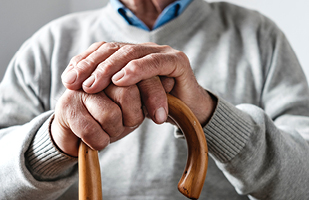Supreme Court Offers Elder Abuse Prevention Resources to Attorneys

The Supreme Court of Ohio provides resources to attorneys and judges to help prevent elder abuse.

The Supreme Court of Ohio provides resources to attorneys and judges to help prevent elder abuse.
June is recognized internationally as World Elder Abuse Awareness Month. According to the Ohio Department of Job and Family Services (ODJFS), local agencies receive over 100 adult protective services referrals each day.
To help protect the state’s elderly population, the Supreme Court of Ohio provides guidance and resources to attorneys, judges, and magistrates.
Elder abuse can include physical, sexual, or psychological abuse, as well as neglect, abandonment, or financial exploitation. Signs of elder abuse can include having physical injuries, being isolated, missing appointments, appearing frightened or avoiding specific people, suddenly withdrawing from usual activities or interactions, changes in mood or temperament, changes in personal hygiene, or being resistant to touching.
Although anyone can report suspected elderly abuse, certain individuals are mandated reporters by profession. Among them are Ohio’s attorneys.
Those admitted to the practice of law in Ohio must immediately report suspected abuse to the county JFS where the elderly adult resides. The requirement arises when an attorney has “reasonable cause to believe that an adult is being abused, neglected, or exploited, or is in a condition that is the result of abuse, neglect, or exploitation,” according to state law. Additional training materials addressing elder abuse for mandated reporters can be found on the Court website.
ODJFS developed Understanding Elder Abuse: A Guide for Legal and Law Enforcement Professionals to assist those with mandatory reporting duties. The guide defines elder abuse, explains ways to identify abuse, describes the mandated reporting process, and offers ways to intervene.
To advance the investigation and prosecution of elder abuse cases, the Ohio Attorney General’s Office launched an Elder Justice Unit. The Ohio Department of Aging offers resources for older Ohioans, caregivers, and professionals in the aging network.
Additionally, the Rules of Superintendence for the Courts of Ohio require education for guardians for adults , including a one-time fundamentals course and continuing education requirements for each following year. That information is outlined in rules 66.06 and 66.07. To help meet this requirement, free courses are offered in many communities throughout Ohio and online. Those interested in learning more can check with their local probate court for other possible court-approved education.
More information is also available through the National Clearinghouse on Abuse in Later Life (NCALL), which provides comprehensive training, consultation, and resources for victims and justice partners on abuse in later life.


